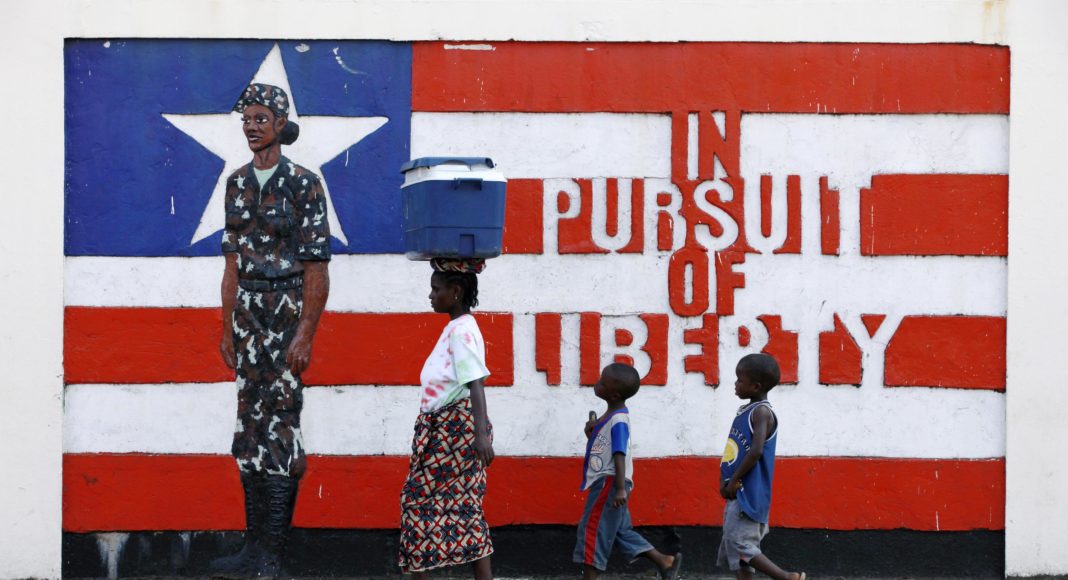By Dounard Bondo
Liberia held a constitutional referendum on whether to repeal its long-standing dual citizenship prohibition on December 8, 2020. If passed into law, dual citizenship reform might bring into question another hotly debated law that restricts Liberian citizenship to Black people.
When freed slaves from America and the Caribbean repatriated to West Africa with the aid of colonization societies in the 1840s, they formed the country Liberia with the natives they met on the land, who made up the majority of the population. However, Liberian citizenship was restrictive as it allowed citizenship only for Black people, or people of black descent. The country also prohibited dual citizenship for adults.
The Liberian constitution states, “In order to preserve, foster and maintain positive Liberian culture, values and character, only persons who are Negroes or of Negro descent shall qualify by birth or by naturalization to be citizens of Liberia.”
In the application of the law, there is no required method of determining or tracing one’s “negro descent.” Therefore, it is usually determined by physical attributes, and individuals that lack obvious attributes have to provide documentary evidence or find another way to prove how black they are.
Practically, the clause ensures Liberia’s Middle Eastern and Asian trader community, who are major economic players, are exempted from citizenship. Liberia’s President, George Weah, has referred to the Negro Clause as “unnecessary and racist.” He also publicly supported constitutional change to allow dual citizenship, which he has a personal interest in: his son Timothy is an American citizen and plays for the U.S. national soccer team, excluding him from citizenship in the country his father is president of.
For Tennen Dalieh Tehoungue, a Liberian citizen and PhD student at Dublin City University, the racial citizenship restriction is important to maintain for now, as a means to promote economic growth for Liberians. “The clause stems from a history where citizens who were former slaves tried to protect the country against exploitation by limiting access to citizenship,” she explained.
“We need better institutions to curb excesses. There are laws (the Liberianization policy) that restrict certain jobs and real estate ownership to Liberians. But are they being strictly enforced? Seeing as our economy is hugely affected by external factors and foreign players, opening the floodgates on citizenship without building our institutions might lead to exploitation,” Tennen said.
Tennen isn’t alone. In 2015, Liberia conducted a Constitutional Review Conference, and delegates voted to maintain the status quo with regards to citizenship.
The fight for citizenship is also tied to a fight for ownership of land. The Liberian Land Laws restrict ownership of land to citizens, with the only exception being foreign missionary, educational, and other benevolent institutions who can only use the land for the purposes they were acquired.
With a significant number of Liberians below the poverty line, many fear that opening up citizenship and thus opening up land ownership would result in Liberians being spectators in their own economy. The majority of Liberians have little purchasing power, and in 2019, the gross national income per capita was just USD $580. Thus, there is a fear that they could be outbid in ownership of land and participation in the economy.
On the other hand, the land laws affect the operation of foreign businesses, who cannot own land and can only lease for their operations. Foreign businesses have consistently been Liberia’s highest taxpayers, and the country is looking to encourage more investment in the country. Yet in 2019, Liberia ranked at number 175 in the World Bank “ease of doing business” rankings. Some argue that allowing non-citizens and foreign corporations to own land would allow for a better business environment and attract more investments.
For Liberian citizen Vivian Ekie, the citizenship restriction “was included as shield against slavery and it should be removed as it doesn’t serve that purpose in the 21st century.” She is also hopeful that dual citizenship will be open to all.
If dual citizenship passes, there would be a citizenship pathway for Liberian refugees who migrated abroad during the country’s fourteen-year civil war and adopted the nationality of countries they migrated to, and thus lost their citizenship.
While the results of the dual citizenship referendum hang in the balance, there are many questions that remain about whether possible future reforms to Liberia’s citizenship laws would reflect modern ideas of equality, equity and social justice.
Correction 15:06 GMT: An earlier version of this article stated that preliminary results of the referendum “show positive results for dual citizenship.” The referendum needs a two-thirds majority to pass and preliminary results do not show it winning. The story has been update to reflect that.


